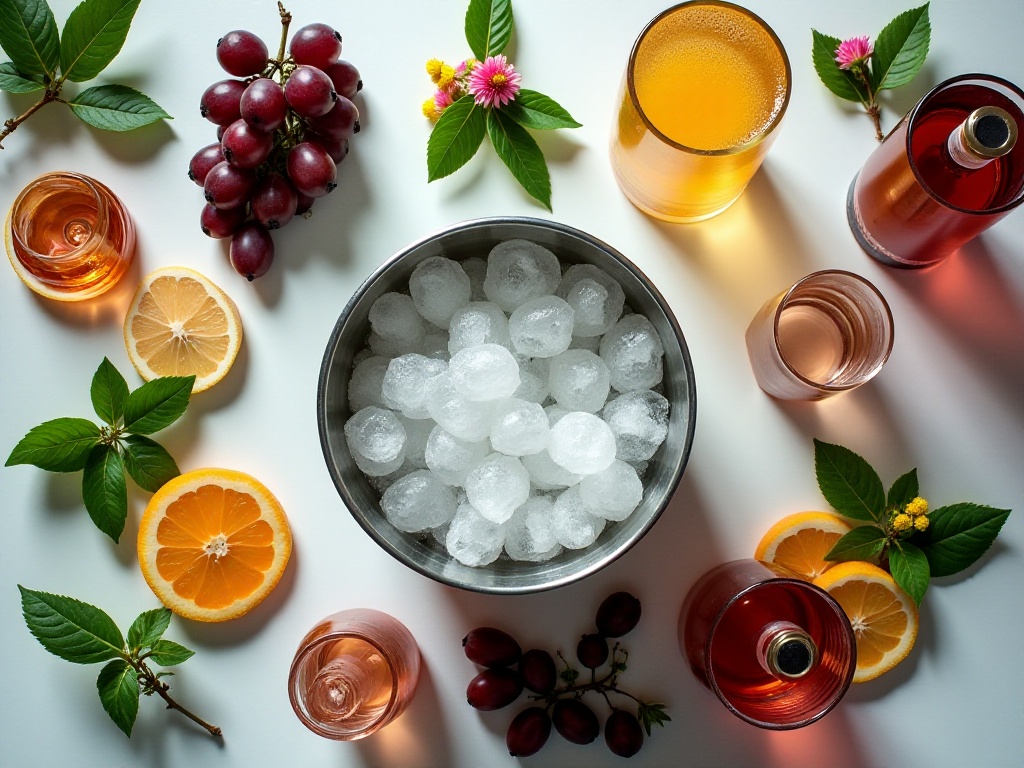Opening Words
As a fresh graduate in the workforce, I feel like I'm constantly spinning like a top, too busy to stop. Racing to catch the subway in the morning, handling documents during lunch breaks, and coming home after overtime so exhausted that I just want to lie down. I deeply understand the importance of time management - after all, who doesn't want to find some time for themselves in their busy lives? After exploring for several years, I've summarized some practical tips that I hope will help everyone better manage their time.
Morning Revolution
Remember my awkward situation when I first tried to wake up early? Every morning was a battle: when the alarm rang, I would instinctively reach for my phone, turn off the alarm, and contentedly burrow back under the covers. The result was predictable - either barely making it to work on time or being late. It wasn't until my supervisor had a serious talk with me that I realized the severity of this problem.
Later, I learned a brilliant method from a time management expert's video: put the alarm clock on the desk, in the farthest corner. This way, I had to get up and walk over to turn it off. Honestly, the first few days were really tough, but when you walk to the desk and find the morning sunlight just right, with a gentle breeze, that feeling is truly beautiful.
Many people ask me what to do after waking up early. My suggestion is: make your bed first. This seems like a small action, but it's actually very significant. First, making your bed helps you wake up completely; second, a neat bed gives you your first sense of achievement for the day. A friend of mine says that every time they come home after working overtime, seeing their neatly made bed from the morning makes all their fatigue disappear.
Moreover, I found that waking up early brings unexpected benefits. For example, I can now leisurely enjoy breakfast instead of wolfing it down like before. Sometimes I can even read a book or meditate for a few minutes. These subtle changes have improved my quality of life significantly.
Time Planning
Preparation Work
When it comes to time planning, many people's first reaction might be: what a hassle! But I want to say that proper planning won't increase your burden; instead, it will make your life easier.
I remember when I first started working, every morning was chaotic. Couldn't find suitable clothes to wear, couldn't find needed documents, couldn't find keys - everything was a mess. Later, I learned a simple but particularly useful method: prepare everything needed for the next day the night before.
Specifically, I spend 10 minutes before bed doing these things: check tomorrow's weather and choose what to wear; check my bag and organize needed documents; put keys, phone, and other personal items in fixed places. This way, I don't have to scramble around the next morning.
Recently, I saw an interesting survey saying that over 60% of office workers spend 20-30 minutes every morning looking for things. Think about it - if we could save this time, we'd have 2-3 extra hours per week! That's why I now focus on finding "homes" for items. For example, I put a cute bowl by the door specifically for keys; a file rack on the desk for important documents; and organize clothes in the closet by occasion. These small changes have made my life more orderly.
Snack Planning
When it comes to planning, some might think planning snacks is too extreme. But I want to tell you, it's really necessary!
According to a survey, office workers spend an average of 45 minutes daily finding and buying snacks. What does this mean? That's 225 minutes per week, almost 4 hours! If we can plan ahead, this time could be used for more meaningful things.
My current approach is to spend half an hour on weekends buying snacks needed for the next week. When shopping, I pay special attention to nutritional balance. For example, preparing healthy snacks like nuts, dried fruits, and whole wheat crackers. Then I portion them out and store them in my office drawer. This not only prevents buying unhealthy snacks when craving hits but also saves a lot of time and money.
Moreover, I found an unexpected benefit of planning snacks ahead: it helps control diet. Because all snacks are carefully selected, you won't buy high-calorie foods when suddenly hungry. Plus, the portioning design helps control daily intake well.
Home Tips

Cooking Skills Upgrade
Honestly, when I first started learning to cook, I was really all over the place. Either cutting myself while chopping vegetables or burning food while stir-frying. What bothered me most was that after cooking, the kitchen looked like it had been through a war, and cleaning up took so much time.
Later I discovered a particularly practical method: clean as you cook. For example, while waiting for water to boil, you can wash the used cutting board and knives; while waiting for food to cook, you can put seasonings back and wipe the counter clean. This not only keeps the kitchen consistently tidy but also saves about 20 minutes of cleanup time after cooking.
Another suggestion I think is especially great is: when cooking, prepare extra ingredients and make tomorrow's lunch at the same time. For example, when making braised pork for dinner, I'll stew extra for tomorrow's office lunch. This method saves me nearly 3 hours of cooking time per week, and ensures nutritionally balanced lunches.
I've also learned some tips to quickly improve cooking skills. For example, sharpen the knife before cutting vegetables - this not only improves cutting efficiency but also prevents cuts from dull knives; prepare all ingredients before stir-frying to avoid chaos; pay attention to heat control while cooking to avoid burning food.

Storage Secrets
Speaking of storage, it's really a technical skill! I recently discovered a particularly clever method: using hair clips to organize cables. You might think this method is strange, but it really works!
The average household now has over 20 various power and data cables, which can easily tangle into a mess if not properly organized. Using hair clips to secure and categorize these cables not only keeps them neat but also makes them easy to find when needed.
Another idea I think is especially great is storing all bedding in one pillowcase. This method seems simple but is very practical. You know what? People usually spend quite some time finding matching sheets and pillowcases when changing bedding. If you keep a set of bedding together, it not only keeps them clean but also saves a lot of time when changing sheets.
Besides these, I've also summarized some storage tips. For example, keep frequently used items within arm's reach; store rarely used items in high places or storage boxes; label everything so it's easy to find. These methods might seem simple, but they really can make life more organized.

Beverage Making

Preparation
As a beverage enthusiast, I think making drinks is also a science. Before starting, the most important thing is to clarify the functional positioning of the drink.
For example, if you want to stay alert, you can choose coffee or tea containing caffeine; if you want to aid digestion, you can choose some herbal teas like mint tea or chamomile tea; if you want beauty benefits, you can choose some fruit teas or health teas.
According to the latest beverage market survey, demand for functional drinks has grown by 35% in the past two years. This shows that more and more people are focusing on the functionality of beverages, not just taste. So it's necessary to think about your needs before making drinks.
I have a small habit: every morning I decide what to drink based on my physical condition and the weather. For example, if I didn't sleep well last night, I'll choose an energizing coffee; if the weather is stuffy, I'll choose refreshing lemonade; if I'm feeling a bit unwell, I'll choose some herbal teas with health benefits.
Material Selection
When choosing ingredients, you need to pay special attention to some details. For example, when choosing ice cubes, different ice cubes will affect the taste of the drink.
Large ice cubes, due to their smaller surface area, melt more slowly, so they're particularly suitable for drinks like whiskey that need to be savored slowly. They can keep the drink cold while not overly diluting its taste.
Crushed ice is more suitable for juice drinks. Because crushed ice has a larger surface area, it can cool drinks faster, and provides a special texture when drinking. However, note that crushed ice melts faster, so it's not suitable for drinks that need to be savored over a long time.
When choosing fruits, also pay attention to some details. For example, it's best to choose fresh lemons for the best flavor of squeezed juice; it's best to choose seasonal fruits, which are not only cost-effective but also taste better.
Another tip is: when making juice, you can cut the fruit in advance and refrigerate it. This not only maintains the fruit's freshness but also makes the juice more refreshing.
Final Words
Through these tips, I believe you can also find extra time for yourself each day, just like I did. So here's the question: what do you plan to do with the saved time?
I personally used this extra time to learn new skills, like learning a new language or learning some programming knowledge. Sometimes I also use it to relax, like reading books, listening to music, or going out with friends.
Time management isn't something that happens overnight; it requires continuous exploration and practice. I hope through sharing these experiences, I can help you find your own time management method. Remember to tell me your thoughts and insights, so we can progress and grow together on this journey of time management.
After all, time is like water in a sponge - if you're willing to squeeze, you can always squeeze some out. The important thing is to find methods that suit you and maximize the value of time. Let's work together to create a more efficient and fulfilling life!
Related articles




